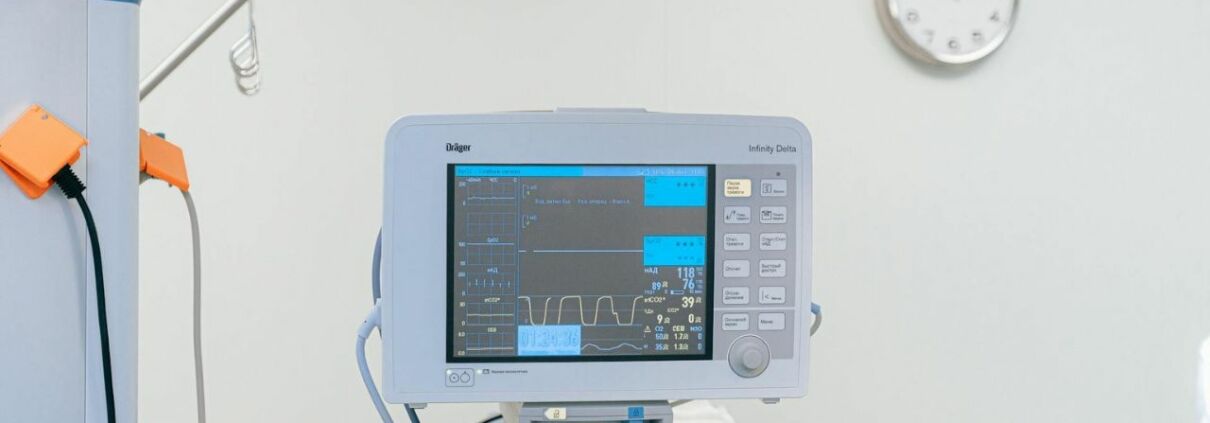Palmar Arch Assessment Required Prior to Radial Access for Heart Catheterization or Radial Harvest
You must have a Palmar Arch Assessment with a high quality Physiologic testing system or an ultrasound system prior to having Radial Access for a Heart Catheterization or a Radial harvest. A standard Allen’s test without waveforms is NOT Sufficient!
Failing to perform a palmar arch exam before undertaking radial access or radial harvest procedures can potentially lead to several complications, including:
Radial Artery Occlusion (RAO):Without a patent palmar arch, there’s a risk of radial artery occlusion following the procedure. RAO can impede blood flow to the hand, leading to ischemia, pain, and potential tissue damage.
Compromised Vascular Access:Inadequate collateral circulation due to an incomplete or absent palmar arch can make radial access challenging or impossible. This may necessitate switching to alternative access sites, leading to procedural delays and increased patient discomfort.
Hand Ischemia:Insufficient blood supply to the hand can result in hand ischemia, characterized by numbness, tingling, pallor, and coldness. Prolonged ischemia can lead to tissue necrosis and long-term functional impairment.
Increased Risk of Complications:Procedures performed without confirming a patent palmar arch carry a heightened risk of procedural complications such as hematoma formation, pseudoaneurysm, and nerve injury. These complications can prolong recovery time, increase healthcare costs, and negatively impact patient outcomes.
Suboptimal Treatment Efficacy:In cases where radial access is utilized for interventional procedures such as coronary angiography or percutaneous coronary intervention (PCI), inadequate collateral circulation due to an unrecognized palmar arch deficiency may compromise the efficacy of the treatment. This can necessitate additional interventions or increase the risk of adverse cardiovascular events.
Legal and Ethical Implications:Failure to perform a palmar arch exam before radial access procedures may raise legal and ethical concerns regarding patient safety and standard of care. Healthcare providers have a duty to ensure that procedures are performed with due diligence and consideration for patient well-being.
Overall, conducting a palmar arch exam before undertaking radial access or radial harvest procedures is crucial for minimizing the risk of complications, optimizing procedural success, and ensuring patient safety. By identifying and addressing potential anatomical variations or deficiencies, healthcare providers can enhance the quality of care delivered to their patients and mitigate adverse outcomes.
Why Perform a Palmar Arch Assessment with Falcon Physiologic Vascular PVD Testing System before Radial Access or Radial Harvest?
In the ever-evolving landscape of medical procedures, precision and accuracy are paramount. Nowhere is this more evident than in procedures involving radial access or radial harvest. These procedures, which involve accessing the radial artery for various interventions, require meticulous planning and assessment to ensure optimal outcomes. One crucial step in this process is the assessment of the palmar arch, and here’s why using the Falcon Physiologic Vascular PVD testing system for this assessment offers unparalleled advantages over traditional methods like imaging or the standard Allen’s test.
Comprehensive Assessment:The Falcon Physiologic Vascular PVD testing system offers a comprehensive assessment of the palmar arch, providing detailed insights into its morphology, functionality, and perfusion dynamics. Unlike imaging techniques that may only provide static images, the Falcon system offers real-time data, allowing healthcare professionals to assess the dynamic nature of the palmar arch under various conditions.
Accuracy and Reliability:Accuracy is non-negotiable when it comes to assessing the palmar arch before radial access or harvest procedures. The Falcon system leverages advanced physiological testing capabilities to provide precise measurements and assessments. This accuracy is essential for identifying any anomalies or variations in the palmar arch that could impact the success of the procedure.
Efficiency and Timesaving:Time is of the essence in clinical settings, and the Falcon system offers efficiency without compromising accuracy. Performing a palmar arch assessment with the Falcon system takes 10 minutes and has seamless integration into your PACS or EMR, allowing healthcare providers to make informed decisions promptly. This efficiency is particularly crucial in urgent or emergent cases where every moment counts.
Risk Mitigation:Identifying potential complications or challenges before proceeding with radial access or harvest procedures is key to mitigating risks. The Falcon system enables healthcare professionals to detect abnormalities in the palmar arch that may pose risks such as inadequate perfusion or collateral circulation issues. By addressing these concerns proactively, clinicians can minimize the likelihood of adverse events during or after the procedure.
Patient-Centered Care: Ultimately, the goal of any medical intervention is to provide the best possible outcomes for patients. By utilizing the Falcon Physiologic Vascular PVD testing system for palmar arch assessment, healthcare providers can offer patient-centered care that prioritizes safety, efficacy, and long-term success. Patients can have confidence knowing that their care team is leveraging cutting-edge technology to optimize their treatment experience.
Conclusion
The Falcon Physiologic Vascular PVD Testing System is not just a technological innovation – it’s a game-changer for vascular procedures. With its ability to deliver rapid, precise palmar arch assessments, streamline documentation, and generate revenue under CPT 93923, it empowers healthcare providers to elevate the standard of care and deliver exceptional outcomes for their patients. Embrace efficiency. Embrace precision. Embrace the Falcon system.

Leave a Reply
Want to join the discussion?Feel free to contribute!